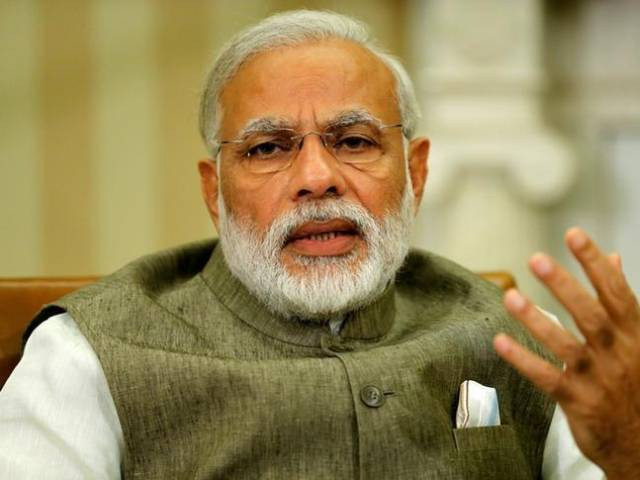India being pushed for ‘direct talks’ with Pakistan
Pakistan has shown willingness to open channel of communications with India either ‘overt or covert’

Indian prime minister Narendar Modi. PHOTO: REUTERS
Pakistan has shown its willingness to open channel of communications with India either ‘overt or covert’ but India has so far refused to respond positively.
Not only the US but also other players, including Saudi Arabia, have been making efforts to convince India for some level of engagement with Pakistan. In fact, Saudi Foreign Minister Adel Jubeir had to put on hold his visit to the region after India’s lukewarm response to the diplomatic efforts for de-escalation in the tensions.
Jubeir was supposed to travel to Islamabad and New Delhi on the last weekend as part of efforts to mediate between the two countries. Observers believe that Indian Prime Minister Narendra Modi is resisting such diplomatic manoeuvres because of domestic compulsions as well as the upcoming elections in India.
But the international players are persuading the Modi administration to at least open some channels of communications with Pakistan. The two neighbours do not even have any ‘backchannel’ at the moment. The conversation between the two countries, if there is any, is being done through interlocutors mainly the United States.
Even the directors general military operations (DGMOs), who interact once in a week through their hotline, have not spoken to each other since India launched the so-called air strikes targeting the alleged terrorist camps of banned Jaish-e-Muhammad (JeM).
On Tuesday, Pakistan announced a series of steps aimed at seeking de-escalation in tensions. One of the steps includes Pakistan’s desire to restore the military-to-military contact between the two countries.
Other measures include Pakistan’s decision to send back its high commissioner to New Delhi, who was recalled after the Pulwama attack. The foreign office here also announced that Pakistan would send its delegation to New Delhi for the planned talks on Kartarpur Corridor. Pakistan is hoping that India would respond positively to its moves.
The US also confirmed that it was making efforts for ‘direct communication’ between Pakistan and India. “The position of the United States is that we urge both sides to continue to take steps to de-escalate the situation, and that includes through direct communication,” Deputy Spokesperson of the US State Department Robert Palladino told reporters in Washington on Tuesday.
He stressed that the US ‘strongly’ believed that “further military activity will exacerbate the situation”. The US official also said that Secretary of State Mike Pompeo had remained in touch both with Pakistan and India during the military standoff. Foreign Minister Shah Mehmood Qureshi also acknowledged the positive role being played by the US in defusing the tensions between Pakistan and India.
The current crisis was triggered after young local Kashmiri carried out a suicide attack, targeting the convoy of Indian Central Reserve Police Force in Pulwama on February 14. India was quick to blame Pakistan after the banned JeM apparently claimed responsibility for the attack.
The two countries were on the brink of war when India violated Pakistani airspace and dropped bombs near Balakot. Pakistan then retaliated with cross-border air strikes only to show India that it had the capacity and the will to hit back at the neighbour if it ever violated its sovereignty.
Islamabad gained military ascendancy after it shot down two Indian warplanes and captured one of its pilots. India claimed of shooting down a Pakistani F-16, a claimed not only rebutted by Islamabad but also international experts.



















COMMENTS
Comments are moderated and generally will be posted if they are on-topic and not abusive.
For more information, please see our Comments FAQ